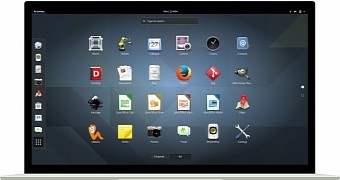GNOME developer Javier Jardón is kicking off the development of the GNOME 3.28 desktop environment with the first snapshot, GNOME 3.27.1, which is now available for public testing.
With a three-day delay, the GNOME 3.27.1 milestone has been released this past weekend for early adopters to give us a first glimpse of what's coming to the GNOME 3.28 desktop environment, due for release on March 14, 2018. The focus for this release has been on porting more apps to the Meson build system.
"GNOME 3.27.1, the first unstable release in the 3.28 development cycle, is now available. The porting of more modules to meson continues (which is great!), but It's still causing some problems for some modules," said Javier Jardón. "If you want to compile GNOME 3.27.1 by yourself, you can use the JHBuild modulesets.
Not so many apps and core components are included in the GNOME 3.27.1, which comes with new versions of the GNOME Builder, Evolution, Epiphany, Baobab, GTK+, Mutter, GNOME Shell, Simple Scan, Yelp, Disks, Logs, Maps, Calendar, Boxes, Clocks, Online Accounts GVFS, and dconf-editor.
GNOME 3.27.2 coming November 15 with more improvements
As usual, you can check the release notes here and here if you're curious to know what exactly was fixed or added in each of these apps, and you can compile and install the GNOME 3.27.1 release on your favorite GNU/Linux distribution using the JHBuild modulesets available at https://download.gnome.org/teams/releng/3.27.1/.
The development cycle of the GNOME 3.28 desktop environment will continue next month with the second snapshot, GNOME 3.27.2, which is expected to land on November 15, according to the official release schedule. Of course, this will bring more improvements to your favorite GNOME apps and components.
For the GNOME 3.28 desktop environment, the development team plans on introducing a new app called GNOME Usage, which can show the current resource usage of your GNU/Linux operating system, implement a sharing framework with support for portals, as well as a brand-new on-screen keyboard.

 14 DAY TRIAL //
14 DAY TRIAL //